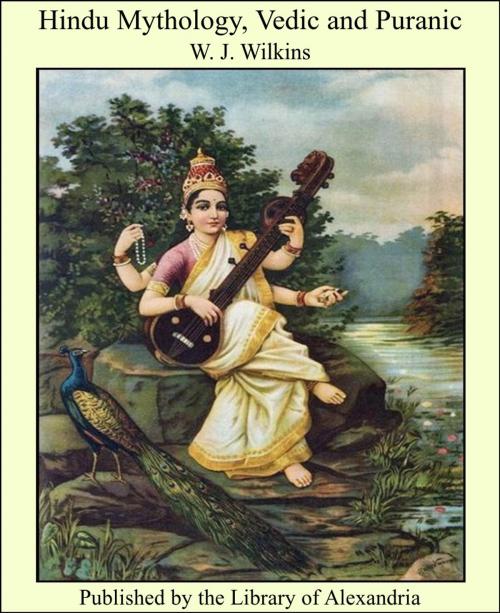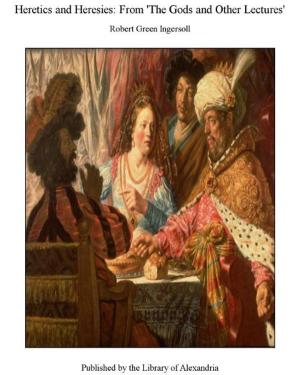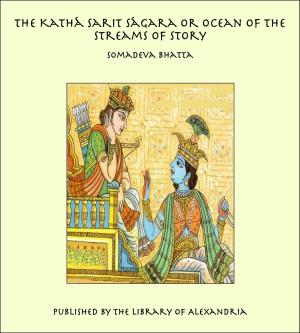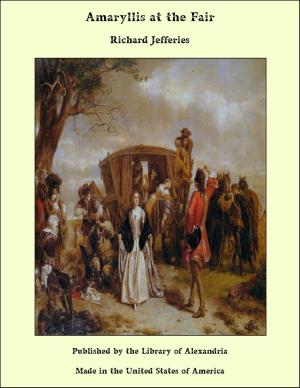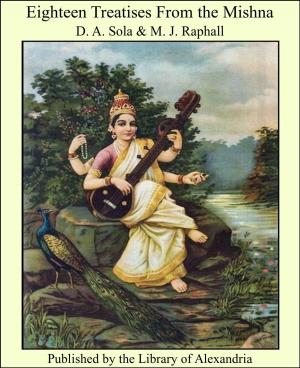Hindu Mythology, Vedic and Puranic
Nonfiction, Religion & Spirituality, New Age, History, Fiction & Literature| Author: | W. J. Wilkins | ISBN: | 9781465535689 |
| Publisher: | Library of Alexandria | Publication: | March 8, 2015 |
| Imprint: | Language: | English |
| Author: | W. J. Wilkins |
| ISBN: | 9781465535689 |
| Publisher: | Library of Alexandria |
| Publication: | March 8, 2015 |
| Imprint: | |
| Language: | English |
ON reaching India, one of my first inquiries was for a full and trustworthy account of the mythology of the Hindus; but though I read various works in which some information of the kind was to be found, I sought in vain for a complete and systematic work on this subject. Since then two classical dictionaries of India have been published, one in Madras and one in London; but though useful books of reference, they do not meet the want that this book is intended to supply. For some years I have been collecting materials with the intention of arranging them in such a way that any one without much labour might gain a good general idea of the names, character, and relationship of the principal deities of Hinduism. This work does not profess to supply new translations of the Hindu Scriptures, nor to give very much information that is not already scattered through many Other books. In a few cases original extracts have been made; but, generally speaking, my work has been to collect and arrange translations ready to hand. It has been my endeavour to give a fair and impartial account of these deities, as far as possible in the words of the sacred books; such an account as I should expect an honest-minded Hindu to give of God from a careful study of the Bible. I have honestly [p. viii] striven to keep free from prejudice and theological bias; and, wishing to let the sacred books speak for themselves, have refrained from commenting on the passages quoted, excepting where some explanation seemed necessary. I have not selected those texts which describe the darker side only of the Hindu gods, nor have such been altogether suppressed. There was much that could not be reproduced. Of what was fit for publication I have taken a proportionate amount, that this, together with what is worthy of commendation, may give a faithful picture. To magnify either the good or the evil is the work of the advocate—a work I, in this book, distinctly disclaim. An honest effort has been made to give a reliable account of the things commonly believed by millions of our Hindu fellow-subjects. In order to render the work more interesting and instructive, a number of illustrations of the principal deities have been introduced. Most of them have been copied from pictures drawn by the Hindus themselves, and which may be seen in the houses of the people. No attempt has been made to idealize them; they are, what they profess to be, faithful representations of the designs of Hindu artists. For their kindness in making these drawings from the original highly-coloured pictures, I am very greatly indebted to my friends the Rev. A. J. Bamford, B.A., and Messrs. H. T. Ottewill and C. A. Andrews, B.A. By the introduction of a full index it is hoped that this work will serve as a classical dictionary of India; whilst the classification of the gods will enable the student to obtain a general view of Hindu mythology, and of the relation in which one deity stands to Others. And as many legends are given at some length, the book can hardly fail to be interesting to the general reader, [p. ix] who may not have time or opportunity to refer to the sacred writings from which they are taken. A word of explanation respecting the classification of the deities is called for. It will be noticed that some of those described as belonging to the Vedic Age appear under the same or Other names in the Puranas; whilst Others spoken of as belonging to the Puranic Age have their origin, traceable indeed with difficulty in some cases, in the Vedas. It was a common practice with the writers of the later books to claim a remote antiquity, and the authority of the Vedas, for the more recent additions to the Pantheon. In some instances an epithet, descriptive of one of the old deities, is attached as the name of a later one. And by this means the old and the new are linked together. The Vedic gods are those whose description is chiefly to be found in the Vedas, and whose worship was more general in the Vedic Age; the Puranic are those who are more fully described in the Puranas, and whose worship was more general in the Puranic Age. Any very rigid classification it is impossible to make
ON reaching India, one of my first inquiries was for a full and trustworthy account of the mythology of the Hindus; but though I read various works in which some information of the kind was to be found, I sought in vain for a complete and systematic work on this subject. Since then two classical dictionaries of India have been published, one in Madras and one in London; but though useful books of reference, they do not meet the want that this book is intended to supply. For some years I have been collecting materials with the intention of arranging them in such a way that any one without much labour might gain a good general idea of the names, character, and relationship of the principal deities of Hinduism. This work does not profess to supply new translations of the Hindu Scriptures, nor to give very much information that is not already scattered through many Other books. In a few cases original extracts have been made; but, generally speaking, my work has been to collect and arrange translations ready to hand. It has been my endeavour to give a fair and impartial account of these deities, as far as possible in the words of the sacred books; such an account as I should expect an honest-minded Hindu to give of God from a careful study of the Bible. I have honestly [p. viii] striven to keep free from prejudice and theological bias; and, wishing to let the sacred books speak for themselves, have refrained from commenting on the passages quoted, excepting where some explanation seemed necessary. I have not selected those texts which describe the darker side only of the Hindu gods, nor have such been altogether suppressed. There was much that could not be reproduced. Of what was fit for publication I have taken a proportionate amount, that this, together with what is worthy of commendation, may give a faithful picture. To magnify either the good or the evil is the work of the advocate—a work I, in this book, distinctly disclaim. An honest effort has been made to give a reliable account of the things commonly believed by millions of our Hindu fellow-subjects. In order to render the work more interesting and instructive, a number of illustrations of the principal deities have been introduced. Most of them have been copied from pictures drawn by the Hindus themselves, and which may be seen in the houses of the people. No attempt has been made to idealize them; they are, what they profess to be, faithful representations of the designs of Hindu artists. For their kindness in making these drawings from the original highly-coloured pictures, I am very greatly indebted to my friends the Rev. A. J. Bamford, B.A., and Messrs. H. T. Ottewill and C. A. Andrews, B.A. By the introduction of a full index it is hoped that this work will serve as a classical dictionary of India; whilst the classification of the gods will enable the student to obtain a general view of Hindu mythology, and of the relation in which one deity stands to Others. And as many legends are given at some length, the book can hardly fail to be interesting to the general reader, [p. ix] who may not have time or opportunity to refer to the sacred writings from which they are taken. A word of explanation respecting the classification of the deities is called for. It will be noticed that some of those described as belonging to the Vedic Age appear under the same or Other names in the Puranas; whilst Others spoken of as belonging to the Puranic Age have their origin, traceable indeed with difficulty in some cases, in the Vedas. It was a common practice with the writers of the later books to claim a remote antiquity, and the authority of the Vedas, for the more recent additions to the Pantheon. In some instances an epithet, descriptive of one of the old deities, is attached as the name of a later one. And by this means the old and the new are linked together. The Vedic gods are those whose description is chiefly to be found in the Vedas, and whose worship was more general in the Vedic Age; the Puranic are those who are more fully described in the Puranas, and whose worship was more general in the Puranic Age. Any very rigid classification it is impossible to make
